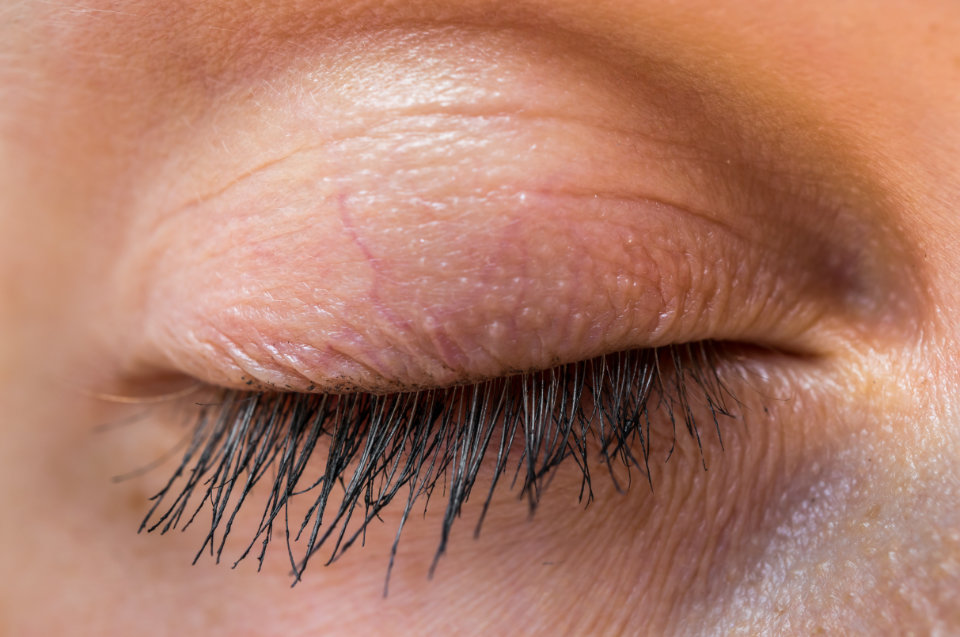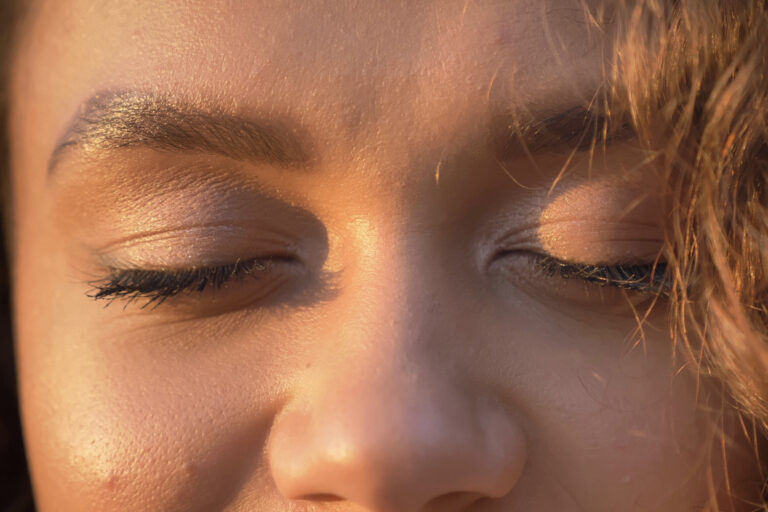For centuries, the human body has been a canvas for a myriad of interpretations, superstitions, and beliefs. From the palms of our hands to the beating of our hearts, every twitch and quirk holds meaning in the eyes of tradition.
Among these myriad interpretations lies the curious case of the eyelid twitching superstition.
Table of Contents
Historical Context on Eyelid Twitching Superstition
Embedded deeply in various cultures, especially within the vast traditions of the Chinese culture, the eyelid twitching superstition stands as a testament to human desire to understand the unknown.
Passed down from generation to generation, the Chinese saying “左眼跳财, 右眼跳灾” / “左吉,右凶” is a hallmark of this belief.
Translating to “a twitch in the left eye brings wealth, a twitch in the right forecasts disaster,” the question remains: Is there truth behind this ancient adage?
The Science Behind Eyelid Twitching
Medically, the phenomenon of eyelid twitching is referred to as “myokymia.” This involuntary, spontaneous, and repetitive muscle contraction and relaxation usually affects the muscles of the eyelids, leading to their noticeable twitching.
Several factors can trigger myokymia:
- Fatigue: A common cause of eyelid twitches, lack of adequate rest can stress the body and lead to muscle spasms, including in the eyelids.
- Stress: The body’s response to stress can sometimes manifest in muscle tension or spasms. The sensitive muscles around the eyes are not exempt from this reaction.
- Caffeine Intake: Overconsumption of caffeine can stimulate the muscles, leading to twitching. A study from the Johns Hopkins Medicine found that reducing caffeine intake could help decrease the frequency of eyelid twitches in some individuals.
- Eye Strain: Spending long hours in front of screens without adequate breaks can strain the eye muscles. According to a report from the American Academy of Ophthalmology, this strain can contribute to myokymia.
- Nutritional Imbalances: A deficiency in certain minerals, such as magnesium, can lead to muscle twitches. The National Institutes of Health has highlighted the role of magnesium in maintaining normal nerve and muscle function.
- Allergies: Some people might twitch as a reaction to allergens, which cause the release of histamine—a compound that can result in itching, tearing, and eyelid twitching.
While the above factors are generally benign, it’s important to note that persistent and chronic eyelid twitching can sometimes indicate more serious neurological conditions, like blepharospasm or certain types of dystonia. It’s essential to consult with a medical professional if the twitching continues for an extended period or is accompanied by other symptoms.
For many individuals, especially within specific cultural contexts, eyelid twitching also carries a layer of superstition and deeper meaning. While science can provide explanations for many phenomena, the cultural beliefs and traditions surrounding them are equally valid and hold significance for countless people.

Superstitions Surrounding Left and Right Eyelid Twitching
As per the Chinese tradition, a twitch in the left eye could herald good fortune. On the contrary, if your right eye twitches, brace yourself for potential challenges.
The depth of this superstition extends further than left versus right; the timing of these twitches can also influence their meanings.
Associated Time Beliefs:
Meaning of Eyelid Twitching Superstition at Different Time of the Day:
| Period | Meaning (Left Eye) | Meaning (Right Eye) |
|---|---|---|
| 2300hrs to 0100hrs | Expect good fortune; a nobleman will visit you. | An invitation to a party or feast awaits you. |
| 0100hrs to 0300hrs | Challenges will arise, causing worry. | Someone is fondly reminiscing about you. |
| 0300hrs to 0500hrs | A distant friend will journey to see you. | Anticipate joyful family events. |
| 0500hrs to 0700hrs | A significant, long-lost guest will appear. | Everything aligns with your plans. |
| 0700hrs to 0900hrs | An intimate friend from afar will visit. | Beware of potential minor injuries. |
| 0900hrs to 1100hrs | Someone will offer a treat but expect a favor in return. | Exercise caution on the road; risk of accidents is heightened. |
| 1100hrs to 1300hrs | Rewards from hard work are imminent; cherish the satisfaction. | Cultivate good karma through acts of kindness. |
| 1300hrs to 1500hrs | Things will progress as planned; seize any arising opportunities. | Relish in small accomplishments. |
| 1500hrs to 1700hrs | Avoid gambling; financial loss is possible. | Thoughts of loved ones will dominate your mind. |
| 1700hrs to 1900hrs | A close acquaintance will seek your assistance; help as you can. | Much like the left eye’s meaning, but from a more distant friend. |
| 1900hrs to 2100hrs | Beware of quick tempers and potential conflicts. | Unexpected gains and good luck are on the horizon. |
| 2100hrs to 2300hrs | Family gatherings are indicated; maintain harmony and avoid disputes. | Exercise prudence in legal matters, especially contractual ones. |
Understanding Eyelid Twitching Superstitions Around the World
While the Chinese have their beliefs about eyelid twitching, various cultures around the world also hold their unique interpretations.
Let’s journey across different continents and cultures to understand the rich tapestry of beliefs surrounding this phenomenon.
- Hawaiian Culture:
- In Hawaii, the superstition surrounding eye twitching is gender-specific. If a man’s left eye twitches, it’s considered a bad omen, while if his right eye twitches, it’s seen as a positive sign. For women, the superstitions are reversed.
- African Culture:
- Within certain African communities, eyelid twitching is believed to be a forewarning that one will see a friend or family member they’ve been missing, or it could be a signal that someone is speaking about them when they are not present.
- Indian Culture:
- In India, the superstition closely mirrors the Chinese belief. A twitching right eye for men is considered a good omen, while the left eye twitching brings bad luck. For women, the meanings are reversed.
- Western Cultures:
- In some Western societies, a twitching eyelid can mean you’ll soon meet someone new or receive an unexpected surprise. While not as deeply ingrained as Asian or African cultures, it’s an interesting comparison to see how modern Western societies have adopted and adapted this superstition.
- Native American Beliefs:
- Native American tribes often considered involuntary bodily movements, including eyelid twitches, as spiritual signs. Depending on the tribe, such a twitch could signify an approaching change, challenge, or a spiritual message waiting to be decoded.
Understanding these global perspectives on eyelid twitching superstitions not only sheds light on the intriguing ways different cultures interpret everyday occurrences but also reinforces the idea that common human experiences often birth a myriad of cultural stories and beliefs.
Modern-day Interpretations and Anecdotes
The digital age has seen its fair share of tweets, blogs, and even memes on the eyelid twitching superstition. These contemporary takes, whether in jest or earnest, highlight the enduring nature of such beliefs in our collective consciousness.
Deciphering the Eyelid Twitching Superstition
The eyelid twitching superstition, like many other traditional beliefs, offers a window into the soul of ancient cultures. While science provides explanations for the physiological phenomenon, the cultural interpretations offer a richer, more colorful insight into the human psyche and our timeless quest to find meaning in the seemingly mundane.
As we delve deeper into such cultural practices, we might also explore topics like how to pray to Guan Gong, predictions for the most luckiest zodiac sign in 2024, or even learn about Feng Shui 2024 adjustments to further harness auspicious energies.
What does the eyelid twitching superstition signify in Chinese culture?
In Chinese tradition, a left eyelid twitch indicates impending good fortune, while a right eyelid twitch suggests upcoming misfortune.
How do the meanings of eyelid twitching change based on the time of day?
In Chinese beliefs, different times of day give varied interpretations for eyelid twitches. For example, a twitch between 2300hrs to 0100hrs in the left eye signals the arrival of a nobleman.
Is the Chinese eyelid twitching superstition followed globally?
No, eyelid twitching interpretations vary across cultures. While some might find similarities, many cultures have their own unique beliefs and meanings.
Does science provide an explanation for eyelid twitching?
Yes, medically known as myokymia, eyelid twitching can be caused by factors like stress, fatigue, caffeine intake, or eye strain. It’s typically harmless.
Are there specific activities to avoid during certain eyelid twitches as per superstition?
According to Chinese superstition, specific activities might be cautioned against depending on the time and eye of the twitch. For instance, gambling might be discouraged during a left-eye twitch between 1500hrs to 1700hrs.



